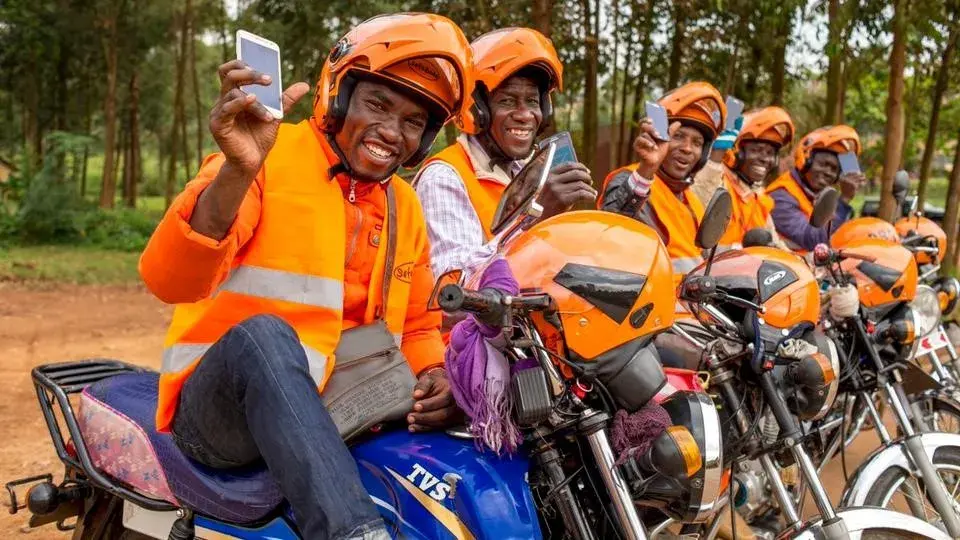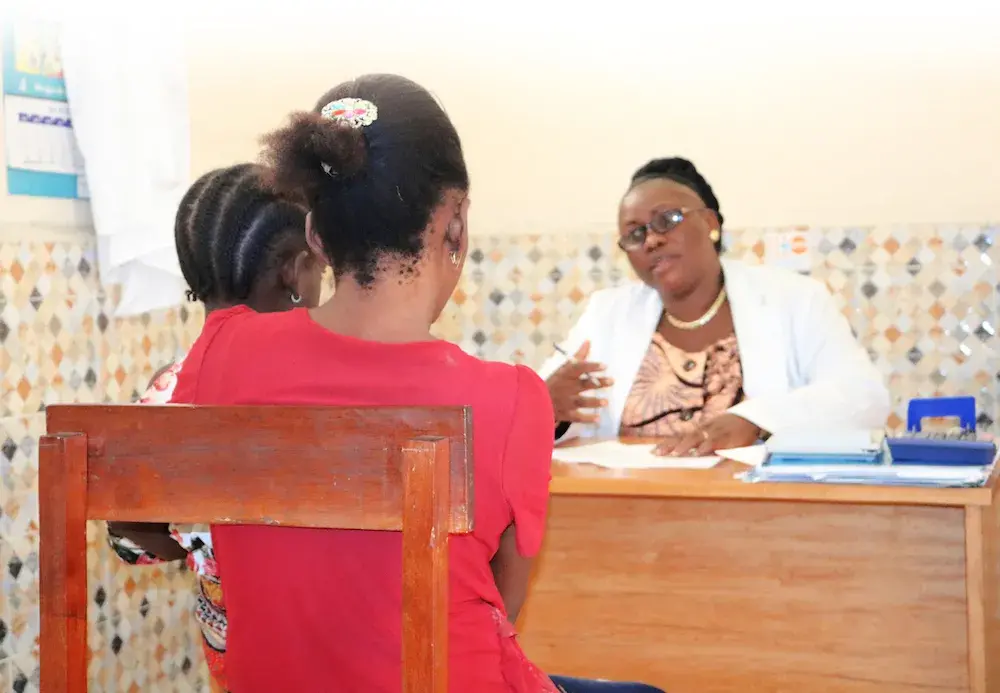PEMBA DISTRICT, Mozambique—To ensure that women and girls are able to access family planning as well as prenatal and post-natal care during the COVID-19 pandemic, special tents have been installed to allow them to adhere to physical distancing protocols during health consultations at clinics in Pemba district.
It is anticipated that the lack of health services following the disease outbreak will impact the sexual and reproductive health of women and girls, putting them at risk of unplanned pregnancies and potentially life-threatening complications of pregnancy and childbirth.

With the support of UNFPA, six tents were delivered and installed at four health units by the Provincial Health Directorate of Cabo Delgado (DPS). The people of Cabo Delgado were hard hit by Cyclone Kenneth, which made landfall in northern Mozambique in April 2019, one month after Cyclone Idai caused devastation on an unprecedented scale, affecting an estimated 227,000 people in the province.
The newly installed tents will be crucial in the prevention of COVID-19, as they allow for adequate distancing in the health units, particularly for vulnerable women and girls requiring prenatal consultations and for those needing further medical attention. An estimated 6,300 women and girls will seek prenatal and postnatal care, family planning consultations, and require follow-up, data for 30 March showed. This number is likely to increase in April.
Need for sexual and reproductive health persists
During the current pandemic, limited space in the health clinics puts women and girls seeking essential services at risk of COVID-19 infection. The continuation of sexual and reproductive health services is critical because basic health-care needs, particularly prenatal and postnatal care, exist even in times of crisis. Women and girls are more vulnerable to unwanted pregnancies and complications of pregnancy and childbirth at such times.
In appreciation of the support for safer work conditions, staff at the health clinics assisted with erecting the tents.
With these new tents, we will be able to isolate patients and separate the services, prioritizing the protection of women and girls who are seeking maternal and child health (MCH) consultations.
“With these new tents, we will be able to isolate patients and separate the services, prioritizing the protection of women and girls who are seeking maternal and child health (MCH) consultations, including pre- and post-partum care and family planning,” said Rodrigues Armando, Director of the Mahate Health Centre. “The tents [ … ] will reduce our concerns about the need for increased physical space in light of COVID-19.”
As part of the intervention, Provincial Health Directorate and UNFPA held orientation sessions for staff on the importance of comparing and analyzing data, to measure the impact of their work.
A major concern has to do with waiting times at the health centres and the eventual exposure of patients to COVID-19.
“With these new tents and services, we intend to analyze the relationship between the patient's waiting time at the health centre and the number of visits made, to reflect on the most requested services and the evolution of the virus,” said Alexandre Muianga, Gender-Based Violence Coordinator, UNFPA Cabo Delgado. “The next challenge, in my view, has to do with the need to support the health sector with nurses and equipment to reinforce services, as we want patients to continue to seek sexual and reproductive health services.”
We intend to analyze the relationship between the patient's waiting time at the health centre and the number of visits made, to reflect on the evolution of the virus.
During the installation and orientation sessions, all safety protocols and standards for COVID-19 prevention were followed, including distancing between team members, consistent hand washing and the use of health masks provided by the DPS.
In the cyclone-affected areas in Sofala province, UNFPA continues to distribute female dignity kits, to which additional COVID-19 preventive items have been added, such as extra soap, whistles for safety, and information, education and communication (IEC) materials. The agency is also procuring additional tents for health services, ensuring the availability of contraceptives, and supporting the Ministry of Health with the training of health professionals.
- Alexandre Muianga with additional support from Karlina Salu




